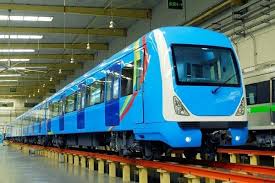Rail sector revenue grows by 81.2% in Q4 2022
Based on recent data from the National Bureau of Statistics on rail transportation, the total revenue generated from the subsector grew by 81.2 per cent q/q to c. N1.69 billion in Q4 2022. This compares favourably with an increase of 27.3 per cent q/q in the previous quarter. On a y/y basis, the total revenue declined by 16 per cent. Specifically, the total subsector’s revenue is made up of income from passenger fees, freight, and other sources.
The robust q/q growth in total revenue was driven by a rise in passenger traffic, which more than doubled to 1.34 million in Q4 2022 from 500,000 in Q3 2022. According to the data, passenger revenue increased +61.4 per cent q/q to N1.15bn in Q4 2022 (accounting for 68 per cent of gross revenues during the quarter but declining 39.5 per cent y/y to N1.15bn).
Revenue receipts from other income increased significantly by 224 per cent q/q to c. N382m, while revenue from cargo transportation amounted to over NGN157m, representing an increase of 64 per cent y/y.
Based on news reports, the resumption of operations on the Abuja-Kaduna railway line in December 2022 partly contributed to the q/q rise in total revenue. Conversely, the y/y decrease in revenue can be attributed to lost revenue from the long suspension of rail operations along the Abuja-Kaduna route.
We recall that the federal government suspended Abuja-Kaduna rail line operations in March 2022 due to security concerns. Q4 2022 GDP numbers showed that the rail sector grew by 3.8 per cent y/y, an improvement over the consecutive contractions of -29.9 per cent y/y and -37.9 per cent y/y recorded in the previous two quarters.
In terms of contribution, rail transport accounted for less than 1 per cent (0.03 per cent) of the transportation sector’s real GDP in Q4 2022.
Looking ahead, we anticipate an improved revenue outturn in 2023, as the federal government has implemented various security measures to address the security challenges faced by the sub-sector.
Railways are a climate-smart and efficient way to move people and freight and promote economic growth while cutting greenhouse gas emissions. They are a clean and compact way to move millions of passengers and millions of tons of goods across countries. That said, the high level of insecurity in the country is fast becoming a major bottleneck to patronage despite the current administration’s efforts to integrate rail transport into the Nigerian transportation system.
Recent attacks on the Abuja Kaduna rail line have left a lasting fear in the minds of many Nigerians.




